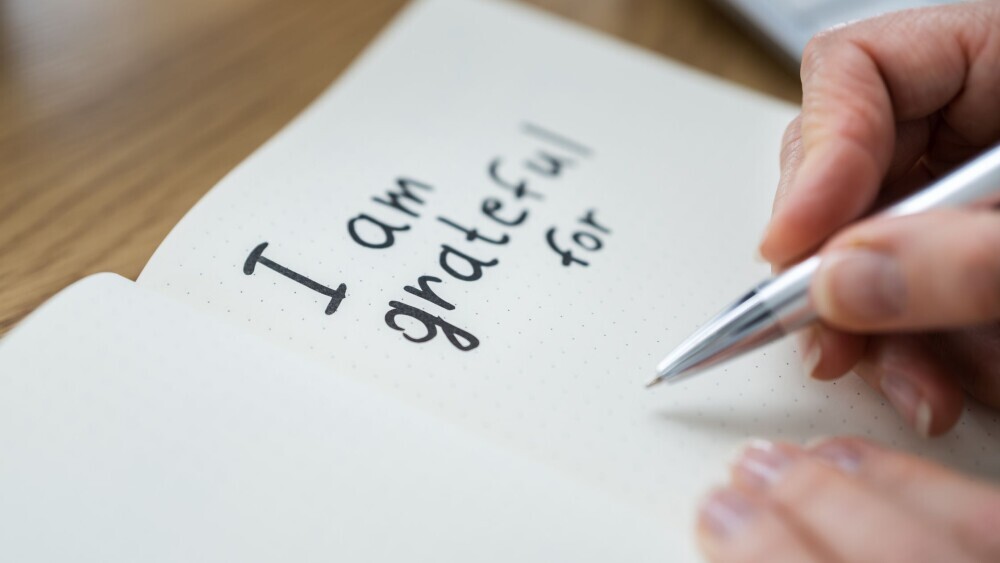
In today’s fast-paced work environment, stress has become an unfortunate but common part of daily life. Juggling multiple tasks, meeting tight deadlines, and handling workplace pressures can lead to burnout and decreased productivity. However, finding effective ways to manage stress is crucial for maintaining your well-being. This article explores ten practical work stress relief ideas that will help you achieve a healthier, more balanced life while improving your work performance.
Improve Your Time Management Skills

One of the leading causes of work-related stress is feeling overwhelmed by too many tasks and insufficient time. Learning how to manage your time effectively can significantly reduce this stress. Start by organizing your day with clear priorities and a solid plan.
- Plan: Create a to-do list highlighting your top priorities each morning (or the night before). By focusing on what matters most, you’ll spend less time worrying about unfinished tasks.
- Break Down Large Tasks: Tackling a massive project can feel daunting. Break it into smaller, manageable chunks to make progress without feeling overwhelmed.
- Use Tools to Stay Organized: Use scheduling and task management tools to keep track of deadlines and responsibilities. Apps like Trello, Asana, and Google Calendar can help you stay organized and efficient.
Mastering time management boosts productivity and gives you more control over your day, reducing feelings of stress and chaos.
Incorporate Mindfulness and Deep Breathing

Stress can quickly accumulate when we fail to take a moment to pause and reset. Incorporating mindfulness and deep breathing exercises into your daily routine can profoundly calm your mind and body.
- Practice Simple Breathing Exercises: Try taking slow, deep breaths when you feel tension rising. Focusing on your breath for a few minutes can lower your heart rate and help you regain a sense of calm.
- Start a Mindfulness Practice: Consider meditating for a few minutes every morning. Focusing on the present moment can clear mental clutter and help you approach challenges with a calmer mindset.
- Use Mindfulness Apps: Guided meditation apps like Calm and Insight Timer offer simple ways to introduce mindfulness into your routine, helping you relieve stress even during short breaks.
Mindfulness and breathing techniques are simple yet powerful tools for staying grounded in work pressures and preventing stress from spiralling out of control.
Engage in Regular Physical Activity

Exercise is one of the most effective methods for reducing stress. Physical activity helps release endorphins, which act as natural stress relievers and boost mood and energy levels.
- Get Moving During Breaks: Even if you have a desk job, taking short walks or stretching during breaks can improve your mental clarity and stress levels. A quick walk outside can rejuvenate you for the rest of the day.
- Establish a Regular Workout Routine: Whether it’s yoga, running, or weight training, finding a form of exercise you enjoy and doing it consistently can improve your mood and energy levels, leaving you better equipped to handle work-related stress.
- Desk Exercises: If you can’t leave the office, try some light stretches or exercises at your desk to relieve physical tension caused by long hours of sitting.
Incorporating physical activity into your daily schedule can improve your physical and mental well-being and help you build resilience against work stress.
Set Clear Work-Life Boundaries

One major cause of work stress is the inability to separate professional responsibilities from personal time. This boundary has become even more blurred with the rise of remote work. Setting clear boundaries between work and personal life is essential for maintaining balance and protecting one’s mental health.
- Establish a Routine: If you work from home, create a straightforward routine with a dedicated start and end time for your workday. This will prevent work tasks from seeping into your personal life.
- Designate a Work-Only Space: Set up a specific area in your home for work. This allows you to “leave” work behind when the day ends, creating a mental boundary between work and relaxation.
- Turn Off Work Notifications: Avoid checking work emails or messages outside your set working hours. Giving yourself time to recharge is crucial to preventing burnout.
By protecting your time, you create space to relax, recharge, and enjoy activities outside of work, which is essential for long-term stress management.
Noise Cancelling Headphones: Benefits For Introverts
Pursue Hobbies That Bring Joy

Hobbies and creative outlets provide a much-needed break from work-related pressures, allowing you to focus on something enjoyable. Engaging in activities you love is an excellent way to relieve stress and refresh your mind.
- Get Creative: Activities like painting, drawing, or playing music allow you to express yourself and disconnect from work demands.
- Write or Journal: Writing can be an effective way to process your thoughts and emotions. Journaling allows you to reflect on stressful events and find clarity.
- Try Something New: Exploring new hobbies, such as learning a new recipe or taking up photography, can bring excitement and joy to your routine and offer a welcome mental break.
Pursuing a hobby helps shift your focus away from work-related stress, making it easier to unwind and regain mental clarity.
Strengthen Social Connections

Having a strong social support network is crucial for managing stress. Meaningful relationships help reduce feelings of isolation and offer emotional support when work becomes overwhelming.
- Take Breaks with Colleagues: Spending time with coworkers, even just a casual chat during a break, can build camaraderie and provide a brief mental escape from work tasks.
- Reach Out to Loved Ones: When you’re stressed, don’t hesitate to contact friends or family. Talking through challenges with someone you trust can lighten the mental load.
- Participate in Group Activities: Joining a group or club outside of work allows you to meet new people and engage in activities unrelated to your job, helping you decompress after long work hours.
Maintaining solid relationships with others helps alleviate stress and provides a sense of belonging and support.
Prioritize Good Sleep

Sleep is crucial for managing stress. Without adequate rest, it’s difficult to stay focused, make sound decisions, and maintain a positive attitude at work.
- Create a Relaxing Bedtime Routine: Develop a consistent sleep schedule to help regulate your body’s internal clock. This can include reading a book, listening to calming music, or practising relaxation techniques before bed.
- Limit Caffeine and Screen Time Before Bed: To promote better rest, avoid consuming caffeine in the late afternoon and reduce screen time an hour before going to sleep.
- Invest in a Comfortable Sleeping Environment: Ensure your bedroom is conducive to good sleep by minimizing noise, keeping the room cool, and using comfortable bedding.
Getting enough sleep ensures you have the mental energy to cope with work stress and tackle challenges with a clear mind.
Embrace Gratitude and Positive Thinking

Focusing on the positive aspects of your life can significantly reduce stress. Developing a mindset of gratitude allows you to appreciate what you have, making stressful situations feel less overwhelming.
- Start a Gratitude Journal: Write down three things you’re grateful for daily. It can be as simple as a positive interaction with a colleague or a good cup of coffee. Over time, this practice helps you maintain a positive outlook.
- Reframe Your Perspective: Instead of viewing work challenges as insurmountable problems, see them as opportunities to learn and grow. This shift in mindset helps reduce stress and makes you more resilient.
- Celebrate Small Wins: Acknowledge your achievements, even the small ones. This builds momentum and helps you stay motivated during stressful periods.
Cultivating positivity in your daily life enhances your ability to manage stress, leaving you better equipped to handle whatever comes your way.
Take Breaks and Disconnect from Work

It’s important to step away from work periodically to stay productive and mentally healthy. Constant work without breaks leads to fatigue and burnout, increasing stress levels.
- Use the Pomodoro Technique: This involves working for 25 minutes and then taking a 5-minute break. This cycle helps keep you focused while preventing burnout.
- Step Outside: Fresh air and a change of scenery can reset your mind. Even a quick walk outside can reduce stress and help you refocus.
- Disconnect After Work Hours: To maintain a healthy work-life balance, avoid disconnecting from work at the end of the day. Resist the urge to check emails after hours to give your mind time to rest.
Taking regular breaks and setting clear boundaries ensures you avoid burnout and stay energized throughout the day.
Seek Professional Support

Sometimes, stress can become too overwhelming to manage alone. Suppose you struggle to cope with work-related pressures. In that case, seeking professional help is a proactive step toward improving your well-being.
- Counselling or Therapy: Speaking with a therapist can help you explore the root causes of your stress and develop healthy coping mechanisms.
- Workplace Support Programs: Many organizations offer Employee Assistance Programs (EAPs) that provide access to counselling services or stress management workshops.
- Online Support Services: If in-person therapy isn’t accessible, online counselling platforms like BetterHelp offer flexible and affordable therapy options.
Seeking professional support when needed ensures that stress doesn’t negatively impact your overall health and well-being in the long run.
Final Thoughts
Work stress is a challenge we all face, but with the right strategies, it doesn’t have to dominate your life. Incorporating these ten practical work stress relief ideas can improve your mental and emotional well-being, leading to a healthier and more balanced life. Whether improving time management, prioritizing self-care, or seeking support, these strategies empower you to regain control over your work-life balance and thrive personally and professionally.

Thank you for your time, and I hope you found this article helpful; if you have any questions about it, please leave a comment below or feel free to contact me on contact us! Page.
Have a great day!




What a great article with practical tips to manage work stress.
It’s really helpful to see how simple things like taking breaks, practicing mindfulness, and setting boundaries can make a big difference.
I’m definitely going to try to implement some of these strategies into my daily routine.
Sometimes, it’s easy to get caught up in the hustle and bustle of work, but it’s important to remember to take care of yourself.
Thanks for sharing these valuable insights!
Thank you so much for your kind words! I’m happy you found the tips helpful and practical. Small habits like taking breaks, practising mindfulness, and setting boundaries can considerably impact you, even when work gets hectic. It’s easy to overlook self-care in the middle of a busy day, but as you mentioned, taking care of ourselves is essential.
I’m thrilled you plan to incorporate some of these strategies into your routine. I hope they make a noticeable difference in keeping stress at bay. Thanks again for reading and for your thoughtful feedback!
Hello!
I really appreciate this list of stress relief ideas for a more balanced life! As someone who values mindfulness and overall well-being, finding ways to manage work stress is essential. I love how the suggestions are simple yet effective, like taking regular breaks or practicing deep breathing. It’s easy to overlook the importance of stepping away from work to recharge, but it truly makes a difference in our mental and physical health.
What’s your go-to stress relief tip when work gets overwhelming?
Angela M 🙂
Hi Angela!
Thank you so much for your thoughtful feedback! I’m glad the list resonated with you, especially as someone who values mindfulness and well-being. It’s true that taking small steps, like regular breaks or deep breathing, can have a powerful impact on our overall health. Sometimes, the most straightforward practices make the most significant difference.
My go-to stress relief tip when work gets overwhelming is to step outside for a quick walk. A few minutes of fresh air helps me reset and gain perspective. It’s incredible how a little time away from the screen can make everything more manageable!
Thanks again for your kind words, Angela. I wish you all the best in your journey toward a balanced, stress-free life!
Kind Regards
Vlad
Thanks for the very informative article on work and how to cope with its stresses. You offer some very practical tips and advice. Right now, I’m going through an extremely busy period at work and I tend to take a lot on. I like the challenge. I’m busy now and we haven’t hit the really busy period yet.
I’m not feeling overwhelmed, but could be close. Today I’m going to practice the tips you have given by using a list and taking short breaks to rejuvenate my mind. Thanks for the great advice.
Thank you so much for taking the time to share your thoughts! It’s great to hear that you found the article helpful, and I appreciate your openness about your current situation. It sounds like you’re handling your busy period with a positive mindset, which is essential. I’m glad the tips resonated with you and that you plan to incorporate lists and breaks into your routine. Minor adjustments like these can make a big difference in staying focused and preventing burnout.
Remember, taking those moments to recharge is just as crucial as tackling the challenges head-on. Wishing you all the best as you navigate this busy period, and don’t hesitate to revisit these strategies whenever you need a boost!
Your article is very useful because it offers actionable tips to manage your work-related stress! When I work in an office, I used to have a very stressful job. But I realized that I did some of the stuff you recommend. In particular, I practiced gratitude, and I walked everyday as a regular physical activity. It helped me to cope with the stress, but I don’t work in an office anymore, so I have a different type of stress.
Thank you so much for your kind feedback! I’m happy to hear that you found the article helpful and were already practising some tips, like gratitude and daily walks. It’s amazing how those small habits can make such a big difference in managing stress. It’s interesting to hear how your experience with stress has shifted since moving away from office work.
Stress certainly takes on different forms depending on our environment, but many of these strategies can be adapted to new situations. Whether it’s adjusting your routine for a different workspace or finding new ways to practice mindfulness, self-care remains important no matter the setting. I wish you continued success in managing your stress in your current role!
This article offers practical and effective ways to relieve work stress, focusing on time management, mindfulness, physical activity, and setting clear work-life boundaries. The tips are easy to implement and emphasize the importance of self-care and mental well-being. The strategies such as breaking down tasks, incorporating mindfulness, and engaging in hobbies can help anyone create a balanced and productive life. I’m curious—what do you think is the most effective method for maintaining consistent work-life boundaries, especially in remote work environments?
Thank you so much for your thoughtful comment! I’m happy you found the tips helpful. When it comes to maintaining consistent work-life boundaries, especially in a remote setting, I think the key lies in setting clear expectations—both with yourself and your team. Having a designated start and end time for your workday is crucial, and communicating these boundaries to your colleagues ensures everyone is on the same page.
I also find that creating a physical separation between work and home life, such as a dedicated workspace, really helps. When the workday ends, stepping away from that space signals it’s time to unwind. It’s all about finding small routines that create a mental shift.
Hi Vlad,
I recently had the opportunity to read your article on work stress relief ideas and I wanted to reach out to express my appreciation for the practical advice you’ve compiled. Your thoughtful approach to tackling common workplace challenges is both inspiring and incredibly helpful.
As someone who often juggles multiple tasks and deadlines, I found your segment on time management especially enlightening. The tips on breaking down large tasks and utilizing tools like Trello and Asana are strategies I plan to implement right away to enhance my productivity while keeping stress at bay.
I also appreciated the emphasis on physical and mental well-being, from simple breathing exercises and mindfulness to establishing a regular exercise routine. It’s a gentle reminder that taking care of one’s body and mind is crucial in managing stress effectively.
Your article has not only offered useful strategies but has also motivated me to prioritize my well-being amidst the pressures of work. Thank you for sharing your insights and for contributing positively to the discourse on work-life balance.
Warm regards,
Eric
Hi Eric,
Thank you so much for your kind words and for sharing your thoughts about my article! I’m thrilled to hear that you found the strategies helpful, especially the tips on time management. It’s great that you’re planning to implement tools like Trello and Asana—those minor adjustments can make a big difference in staying organized and reducing stress.
I’m glad the emphasis on physical and mental well-being resonated with you. It’s easy to overlook self-care when we’re caught up in work, but as you mentioned, taking care of both body and mind is crucial for managing stress in the long term.
It’s always rewarding to hear that the content I’ve shared has had a positive impact, and your feedback motivates me to keep exploring and writing on these topics. Thank you again for your thoughtful message. I wish you the best as you prioritize your well-being amidst your busy schedule!
Warm regards,
Vlad